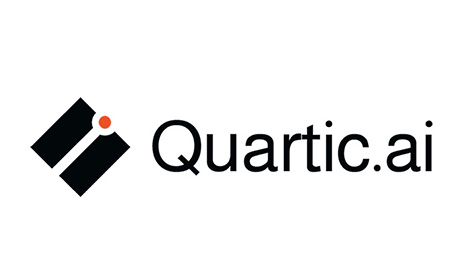Res-Q-Rity, led by the dynamic and visionary CEO Tejasree A. Pagidipati, is renowned for its innovative approach to cybersecurity, particularly for small and medium-sized businesses. This customer story highlights the collaboration between Res-Q-Rity and Quartic.ai, a forward-thinking company based in Bangalore, to address their cybersecurity needs effectively. The partnership spanned from March 2023 to August 2023, during which significant strides were made in enhancing Quartic.ai’s security posture.
Understanding Quartic.ai’s Challenges
Quartic.ai, a prominent player in artificial intelligence and machine learning solutions, faced several cybersecurity challenges:
- Lack of a Comprehensive Security Roadmap: Quartic.ai needed a well-defined security roadmap aligned with ISO27001 standards to ensure robust security measures.
- Technical and Business Gaps: Bridging the gap between technical capabilities and business requirements was crucial for maintaining a secure and efficient operation.
- Enterprise Gap Analysis: Identifying and addressing security gaps within the enterprise environment was essential to mitigate potential risks.
- Change Management Process: Implementing a centralised change management process was necessary to streamline security updates and changes.
- ISO9001 Surveillance Audit: Collaborating on a surveillance audit for ISO9001 was required to maintain quality and security standards.
- Technical Proof of Concepts: Leading Proof of Concepts (PoCs) for identified technical gaps was vital to validate and implement effective security solutions.
- ISMS Project Management: Implementing ISMSOnline compliance software to manage the Information Security Management System (ISMS) project effectively.
The Collaboration Journey
Let’s see how Res-Q-Rity took hold of the situation by using correct procedural methods –
1. First Interaction and Evaluation
The collaboration began with a comprehensive assessment of Quartic.ai’s existing security framework. Tejasree Pagidipati and her team at Res-Q-Rity conducted an in-depth analysis to understand the specific challenges and requirements. This phase involved:
- Stakeholder Interviews: Engaging with key stakeholders to gather insights into the current security landscape and business objectives.
- Technical Audits: Conducting thorough technical audits to identify vulnerabilities and areas of improvement.
- Gap Analysis: Performing a detailed gap analysis to pinpoint discrepancies between current practices and ISO27001 standards.
2. Designing the Security Roadmap
Based on the assessment findings, Res-Q-Rity designed a comprehensive security roadmap tailored to Quartic.ai’s needs. The roadmap focused on aligning with ISO27001 standards and included:
- Policy Development: Creating and updating security policies to reflect best practices and compliance requirements.
- Risk Management: Establishing a robust risk management framework to identify, assess, and mitigate risks effectively.
- Training and Awareness: Implementing training programs to enhance security awareness among employees and stakeholders.
- Incident Response Plan: Developing an incident response plan to ensure swift and effective response to security incidents.
3. Bridging Technical and Business Gaps
Tejasree Pagidipati provided strategic direction to bridge the gap between technical capabilities and business requirements. This involved:
- Collaboration with Technical Teams: Working closely with Quartic.ai’s technical teams to implement security measures without disrupting business operations.
- Business Alignment: Ensuring that security initiatives aligned with business objectives and added value to the organisation.
- Regular Reviews: Conducting regular reviews and updates to ensure that security measures remained relevant and effective.
4. Conducting Enterprise Gap Analysis
A thorough enterprise gap analysis was conducted to identify security gaps within Quartic.ai’s environment. This included:
- Vulnerability Assessments: Performing regular vulnerability assessments to identify potential weaknesses.
- Penetration Testing: Conducting penetration testing to evaluate the effectiveness of existing security controls.
- Security Audits: Regular security audits to ensure compliance with ISO27001 and other relevant standards.
5. Implementing Centralised Change Management
Implementing a centralised change management process was critical to streamline security updates and changes. Key steps included:
- Change Control Board (CCB): Establishing a Change Control Board to oversee and approve changes to the security environment.
- Change Management Policy: Developing a change management policy to guide the process and ensure consistency.
- Change Tracking and Documentation: Implementing tools and processes to track and document changes for accountability and transparency.
6. Collaborating on ISO9001 Surveillance Audit
Tejasree Pagidipati and her team collaborated on a surveillance audit for ISO9001 to maintain quality and security standards. This involved:
- Preparation and Documentation: Preparing necessary documentation and evidence to support the audit process.
- Internal Audits: Conducting internal audits to identify and address any non-conformities.
- Audit Support: Providing support and guidance during the external audit to ensure a smooth process.
7. Leading Proof of Concepts (PoCs)
Leading PoCs for identified technical gaps was a critical aspect of the collaboration. This included:
- Identifying Solutions: Identifying and evaluating potential solutions to address technical gaps.
- Pilot Testing: Conducting pilot tests to validate the effectiveness of proposed solutions.
- Implementation: Implementing successful solutions and integrating them into the existing security framework.
8. Implementing ISMSOnline Compliance Software
To manage the ISMS project effectively, ISMSOnline compliance software was implemented. Key features included:
- Centralised Management: Centralised management of the ISMS project to ensure consistency and efficiency.
- Compliance Tracking: Tracking compliance with ISO27001 standards and other relevant regulations.
- Reporting and Analytics: Generating reports and analytics to monitor progress and identify areas for improvement.
Impact and Outcomes
The collaboration between Res-Q-Rity and Quartic.ai yielded significant positive outcomes:
- Enhanced Security Posture: The implementation of a comprehensive security roadmap and centralised change management process significantly enhanced Quartic.ai’s security posture.
- ISO27001 Compliance: Alignment with ISO27001 standards ensured compliance and improved overall security practices.
- Improved Risk Management: A robust risk management framework helped identify and mitigate potential risks effectively.
- Streamlined Change Management: The centralised change management process streamlined security updates and changes, improving efficiency.
- Successful ISO9001 Audit: Collaboration on the ISO9001 surveillance audit ensures continued compliance with quality and security standards.
- Validated Technical Solutions: Leading PoCs for identified technical gaps validated and implemented effective security solutions.
- Effective ISMS Project Management: The implementation of ISMSOnline compliance software facilitated effective management of the ISMS project.
Table: Key Achievements of the Collaboration
| Achievement | Description |
| Enhanced Security Posture | Implementation of comprehensive security roadmap and centralised change management. |
| ISO27001 Compliance | Alignment with ISO27001 standards for improved security practices. |
| Improved Risk Management | Establishment of a robust risk management framework. |
| Streamlined Change Management | Centralised process for security updates and changes. |
| Successful ISO9001 Audit | Continued compliance with quality and security standards. |
| Validated Technical Solutions | Successful Proof of Concepts for identified technical gaps. |
| Effective ISMS Project Management | Implementation of ISMSOnline compliance software. |
Conclusion
The partnership between Res-Q-Rity and Quartic.ai, led by Tejasree Pagidipati, exemplifies the power of collaboration in achieving cybersecurity excellence. By addressing Quartic.ai’s specific challenges and implementing tailored solutions, Res-Q-Rity demonstrated its commitment to empowering businesses through robust security measures. This collaboration not only enhanced Quartic.ai’s security posture but also set a benchmark for effective cybersecurity practices in the industry.
Key Takeaways
- Strategic Collaboration: Effective collaboration between cybersecurity experts and business stakeholders is crucial for addressing security challenges and achieving compliance.
- Comprehensive Roadmap: Designing a comprehensive security roadmap aligned with industry standards ensures robust security measures and continuous improvement.
- Centralised Change Management: Implementing a centralised change management process streamlines security updates and improves efficiency.
- Risk Management: A robust risk management framework is essential for identifying and mitigating potential risks effectively.
- Continuous Improvement: Regular audits, assessments, and reviews are necessary to ensure that security measures remain relevant and effective.
Appendix
- Stakeholder Interviews: Detailed insights and feedback from key stakeholders.
- Technical Audit Reports: Findings from the technical audits conducted during the assessment phase.
- Gap Analysis Reports: Detailed reports highlighting the security gaps identified and addressed.
- Change Management Policy: The policy document guiding the centralised change management process.
- Audit Preparation Documents: Documentation prepared for the ISO9001 surveillance audit.
- PoC Evaluation Reports: Reports on the evaluation and outcomes of the Proof of Concepts conducted.
- ISMSOnline Implementation Guide: Guide to the implementation and management of ISMSOnline compliance software.
Frequently Asked Questions (FAQs) about Res-Q-Rity
1. What services does Res-Q-Rity offer?
Res-Q-Rity offers a wide range of cybersecurity services designed for small and medium-sized businesses. These services include comprehensive security assessments and audits to identify vulnerabilities, compliance and risk management assistance to meet industry standards like ISO27001 and GDPR, and development of customised security roadmaps. Additionally, Res-Q-Rity provides incident response and management, training and awareness programs to foster a security-conscious culture, and managed security services for ongoing monitoring and support to protect against evolving threats.
2. How does Res-Q-Rity ensure the security of our data?
Res-Q-Rity ensures the security of your data through a multi-layered approach that includes advanced encryption techniques, strict access control measures, and regular security audits and assessments. The company adheres to industry standards and regulations such as ISO27001 and GDPR, ensuring high security standards are maintained. Comprehensive incident response plans are in place to swiftly address any security incidents, and continuous monitoring of the security environment allows for real-time threat detection and response.
3. What industries does Res-Q-Rity specialise in?
Res-Q-Rity specialises in providing cybersecurity solutions across various industries, including finance, healthcare, education, manufacturing, and technology. By understanding the unique security challenges and regulatory requirements of each industry, Res-Q-Rity tailors its services to effectively address specific needs and vulnerabilities. This industry-specific expertise ensures that clients receive the most relevant and effective cybersecurity solutions to protect their assets and maintain compliance with industry standards and regulations.
4. How can Res-Q-Rity help our organisation achieve compliance?
Res-Q-Rity helps organisations achieve compliance by providing expert guidance and support in meeting regulatory requirements such as ISO27001, GDPR, HIPAA, and more. The company conducts thorough assessments to identify compliance gaps, develops and implements tailored compliance programs, and offers ongoing monitoring and reporting to ensure continued adherence to regulations. With Res-Q-Rity’s assistance, organisations can confidently navigate the complexities of regulatory compliance, reduce the risk of non-compliance penalties, and enhance their overall security posture.
5. What makes Res-Q-Rity different from other cybersecurity firms?
Res-Q-Rity stands out from other cybersecurity firms due to its personalised approach, commitment to education, and focus on empowering clients. The company takes the time to understand each client’s unique needs and challenges, offering customised solutions rather than one-size-fits-all services. Res-Q-Rity places a strong emphasis on educating clients and their employees about cybersecurity best practices, fostering a culture of security awareness. Additionally, the firm’s leadership, including CEO Tejasree A. Pagidipati, is recognized for pioneering strides in female entrepreneurship and promoting diversity in the tech industry.
Click here, to know more about Res-Q-Rity.









